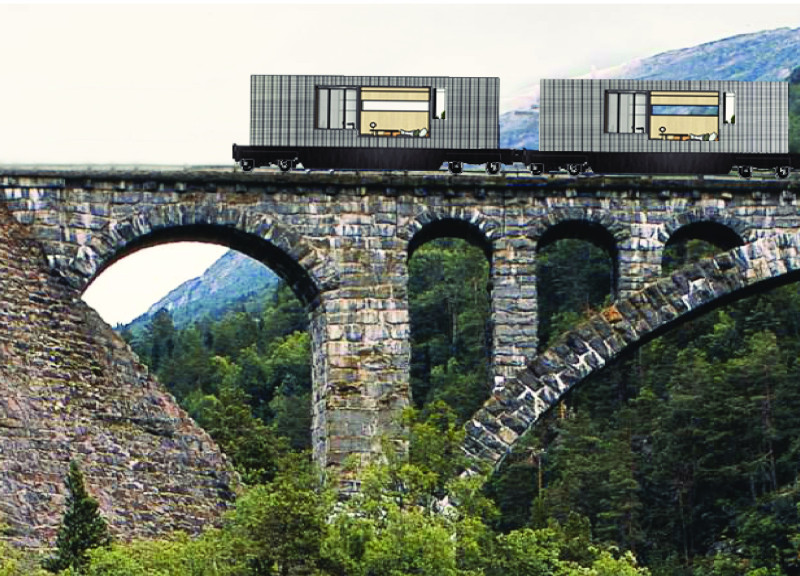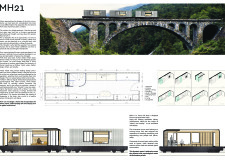5 key facts about this project
Flexible Living Arrangements
The primary function of the MH21 micro-home is to provide efficient living environments within a limited footprint. The design focuses on spatial optimization, where every square meter serves a purpose. The layout features a compact kitchen, a multifunctional living area, a sleeping nook, and a workspace, promoting a blend of comfort and utility. This arrangement supports various lifestyle choices, from single occupants to small families, and adapts to the growing trend of remote work.
Sustainable and Adaptive Design
What sets the MH21 project apart from conventional housing solutions is its emphasis on sustainability and the adaptive reuse of materials. By utilizing former train cabins, the design not only reduces construction waste but also revitalizes unused infrastructure. The incorporation of natural materials such as wood and steel enhances both aesthetic appeal and structural integrity. The large glass windows allow for ample natural light, creating a connection between the interior and the surrounding environment, which is essential in psychological wellness.
Innovative Architectural Solutions
The architectural solutions employed in the MH21 project demonstrate a keen understanding of modern living. The use of compact and modular furniture contributes to the overall efficiency of the space, while the design accommodates a flexible living experience. This innovative approach not only addresses housing shortages but also fosters a sense of community among residents by utilizing communal spaces effectively. The design promotes interaction and connectivity, which is increasingly vital in today’s urban landscapes.
To gain a deeper understanding of the MH21 micro-home project, including architectural plans, sections, and comprehensive design elements, the presentation of this project is available for review. Exploring these aspects further reveals how this project uniquely contributes to the discourse on sustainable architecture and efficient living solutions.























